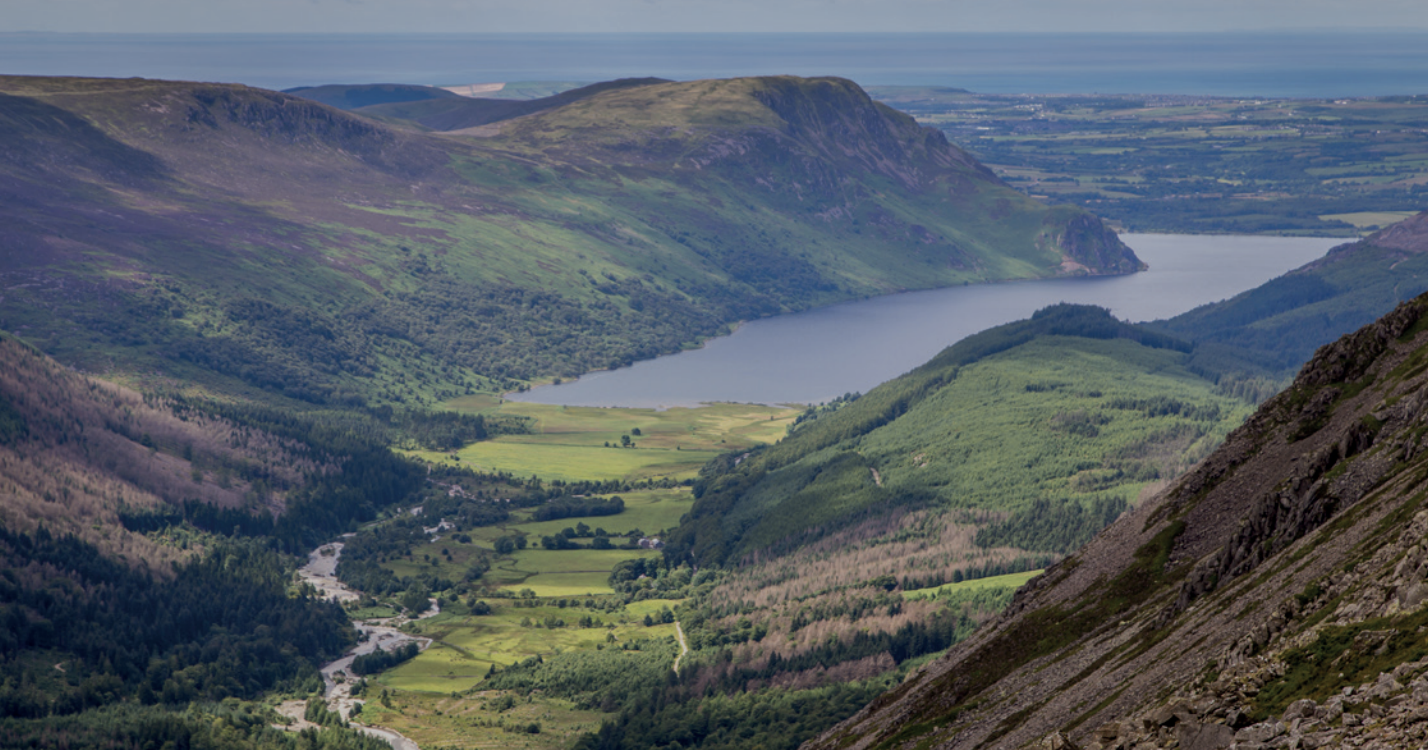
Tucked into the central far west of the Lake District, Ennerdale runs from east to west from the high central fells to the rolling hills and moorland of West Cumbria and the Irish Sea coastal plain. It is the only major Lake District valley to have no public road along it.
Although sparsely populated even today, there have been settlers in Ennerdale since prehistoric times with a concentration of evidence around Stockdale Moor and Town Bank, in the form of burial sites and farming settlements. Cairns and hut circles can be found where the River Calder and Whoap Beck meet. There are also remains of Romano-British farmsteads at Low Gillerthwaite and at Tongue How. Norse immigrants would have settled here in the 12th century. During medieval times, much land would have been under monastic influence and it was at this period that the mineral potential of the valley was realised with the mining and smelting of iron ore.
In the 1920s, the Forestry Commission purchased Ennerdale and created a blanket of commercial conifer forest. This had an effect on the tradition of farming Herdwick sheep. Up until then, Ennerdale held a vital place in the Herdwick story, but 2,000 sheep had to be removed from Gillerthwaite and Ennerdale Dale when the valley was forested. However, there are still 16 farms with fell-grazing livestock in the wider Ennerdale valley.
From a literary perspective, Ennerdale inspired Wordsworth’s poem ‘The Brothers’ in 1800 after he and Coleridge visited the valley a year earlier, but perhaps the area’s largest cultural impact has been on the sport of rock climbing. It was at Pillar Rock in Ennerdale that true rock climbing began. Previously thought unclimbable, local shepherd John Atkinson scaled Pillar in 1824 and kick-started a passion for this tricky piece of rock that climbers from all over the world share to this day.
Ennerdale has been an active place for the conservation movement. The fact that the valley has no railway today is down to strong opposition by Canon Rawnsley and the Lake District Defence Society to a line for transporting iron ore from the valley head. This was an important victory and the society went on to become The Friends of the Lake District. However, some infrastructure did arrive when Ennerdale Water was developed as a water supply for West Cumbria from 1864.
Today, the Wild Ennerdale Project continues the legacy of looking after the environment with a vision to “allow the evolution of Ennerdale as a wild valley for the benefit of people, relying more on the natural processes to shape its landscape and ecology”.
Water extraction, farming and forestry have all played their part in shaping the landscape here, but it is really its striking natural features that give Ennerdale its overwhelming character of wildness and tranquillity